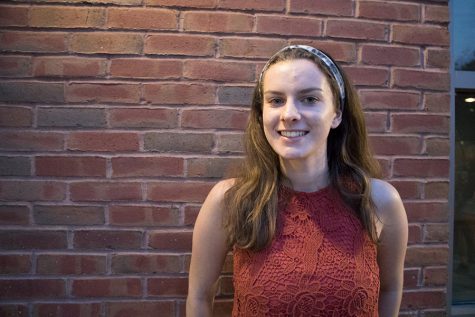Three study tips by way of Capitol Hill
August 30, 2019
As summer ends, I have been reflecting on my experience working as a legislative intern in Sen. Patrick Leahy’s office on Capitol Hill.
I had opportunities to attend briefings, write memoranda for senior staff, answer constituent calls and watch politics in action.
Throughout this experience, I identified three lessons that may help my undergraduate peers.
1. No one really has their life together all the time
Capitol Hill is filled with highly organized, detail-oriented and well put together people who walk with confidence.
Whether it be senior staff walking hurriedly behind their member to the chamber, or the intern attending a briefing, it looks like everyone knows exactly what’s going on all the time.
It is not uncommon to have feelings of inadequacy or displacement as an undergrad, especially as a first-year, transfer or exchange student.
However, it is critical to understand that most of us have been unsure of ourselves at one time or another.
Even the people who seem to always get perfect grades, do lots of extracurriculars and still manage to look great in their 8:30 a.m. class have felt overwhelmed. You are not alone.
It is important to recognize that no one has their entire life together all the time and you should not compare your life to your perception of someone else’s.
2. Your major doesn’t really matter, as long as you have transferable skills
This is mainly for College of Arts and Sciences students. As I networked with staff members across a multitude of Senate offices, I realized that not everyone was a political science major as I had assumed.
Now don’t get me wrong, there were plenty of political science majors, but staffers also held degrees in statistics, philosophy, food systems and communications.
Each time I met with someone who chose a different major, I asked them if they thought it helped or hindered their job prospects. Most said the major doesn’t really matter.
You need to be organized, have strong writing and interpersonal skills and be able to speak effectively.
It’s all about how you market yourself to prospective employers.
Hopefully you will learn these skills by the time you graduate from UVM, so try not to get paralyzed when choosing your major.
3. Take time to eat and get outside while you can
Every day on Capitol Hill is different. It can be hard to squeeze in time to eat lunch and go outside.
However, I had more energy to focus after walking around outside and eating. To be fair, it was more motivating to get up and walk with the ability to see historical landmarks like the Supreme Court and the Library of Congress instead of Howe Library and CCRH.
The ability to take care of yourself not only gives you a mental break, it can help you appreciate our lovely campus before it becomes a snowy tundra for months on end.
Hopefully these tips can help you have a productive and successful year whether or not you’re a political science major.








